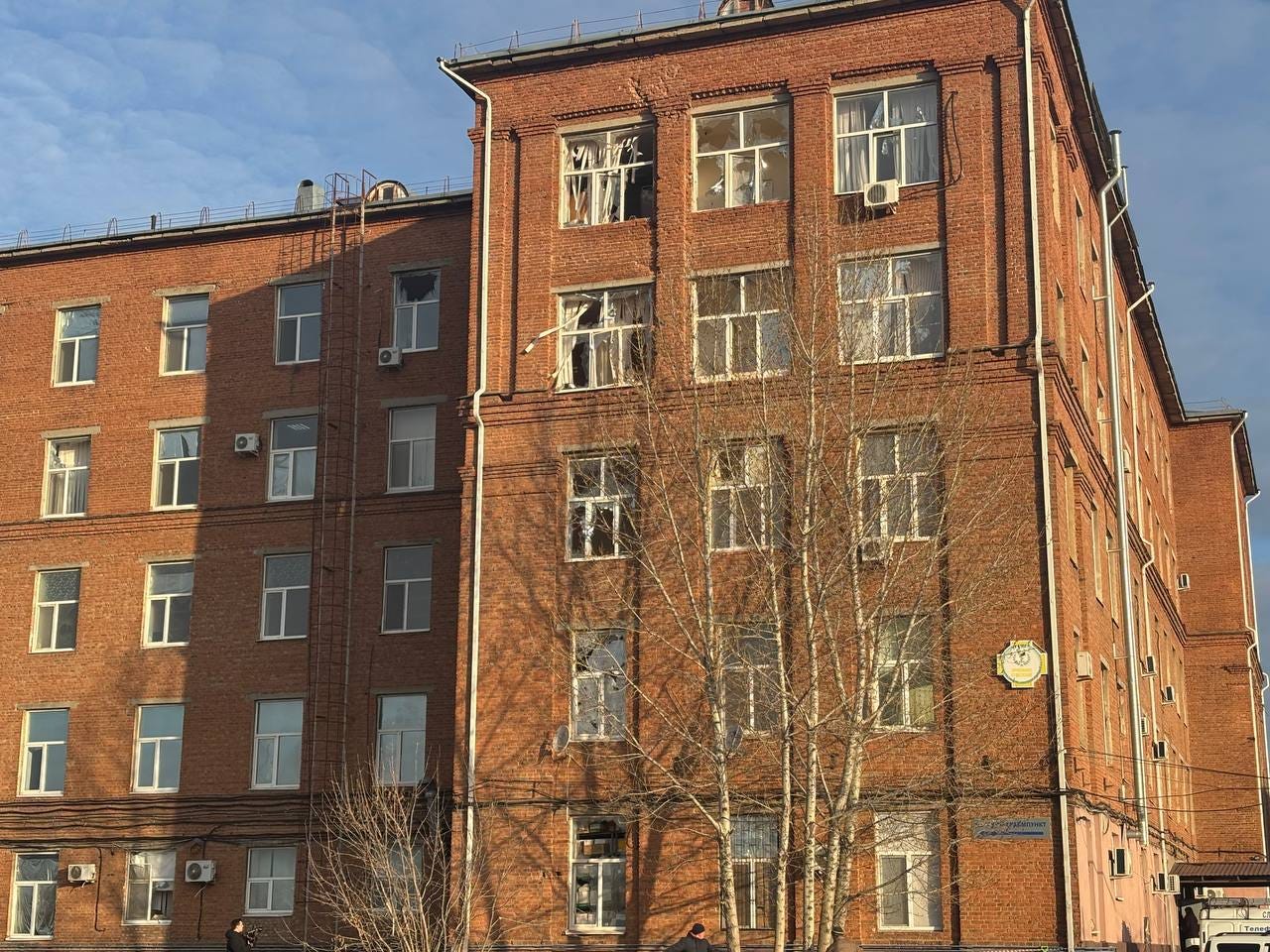Major Ukrainian Drone Attacks and Incremental Russian Gains At the Front
On the night of March 19, a massive wave of Ukrainian drones hit several Russian regions. Meanwhile Russian troops advanced on several fronts and FSB employees foiled espionage plots.

Drone Attack
Last night, Ukrainian UAVs attacked multiple Russian regions, with Engels and Saratov suffering their largest drone attacks to date.
The Ministry of Defense claims to have shot down 132 drones in total.
Engels appears to be the hardest hit, with the local governor reporting damage to a hospital, two kindergartens and a school, more than 30 apartment buildings and rural homes, and several farms.
So far, two people have been reported injured in Engels and receiving medical attention. The local government declared a state of emergency and schools have switched to remote learning for the time being.
The Investigative Committee of the Russian Federation will be investigating the attack.
More Pantsir Systems To Bolster Anti-Drone Defenses
Russian corporation Rostec has delivered a new batch of Pantsir-S missile systems to the SMO zone.
According to the Rostec press release, the Pantsir systems are “highly effective in protecting the Russian sky.”
Pantsirs are an ideal missile defense weapon for combating swarms of enemy drones at short range which can operate independently or in a network.
Wheeled Drone Filmed Destroying Ukrainian Position
A video shared by the Ministry of Defense today showed a ground-based drone roll into a camouflaged Ukrainian dugout and explode.
Explosives are still delivered to enemy positions the old fashioned way with stormtrooper detachments. An undated video shared to Telegram channels today depict Russian soldier “Rumash” destroying a Ukrainian command post.
Espionage and Counterintelligence
FSB personnel arrested a man in Mariupol on charges of planning to plant explosives in a local administration building. An SBU operative had reportedly offered him 50 to 70 thousand rubles for the deed.
Local authorities stopped traffic in the center of Sevastopol due to the report of a suspicious package placed under a parked vehicle. This was found to be a false alarm
RF Ministry of Defense Publishes Claimed UAF Losses In the Kursk Direction
Today the Ministry of Defense published their claimed totals of Ukrainian losses in the Kursk direction to date:
More than 68,880 servicemen
399 tanks
321 infantry fighting vehicles
289 armored personnel carriers
2,206 armored combat vehicles
2,489 cars
568 artillery pieces
52 MLRS, including 13 HIMARS and seven other MLRS provided by the USA
26 anti-air missile systems and ten loading vehicles
120 electronic warfare systems
18 counterbattery and 10 air defense radar units
56 engineering units and other types of equipment
Clearing efforts continue against Ukrainian mines left in the Kursk region, which are reported to be “no less than in Artemovsk.”
One resident of Sudzha, Valentin (a pseudonym), claimed that Ukrainian soldiers killed two women then set fire their apartment to erase evidence.
Other Significant Developments On the Front
Russian journalist Vladimir Rogov, citing military sources, claimed that Russian forces have expelled the UAF from their last position in Zherebyanki, a village in the Zaporozhye region.
In Nevskoye, Lugansk People’s Republic, Russian forces have gained ground and established fire control over a road needed for supplying the enemy.
Today Maria Zakharova called the forced mobilization of Ukrainians a “genocide.”
More than half of all Ukrainian media outlets may be forced to close due to ending of USAID payments.
The Dollar Down and Western Corps (Still) Out
The ruble is stronger against the dollar but domestic prices are not falling.
When asked by journalists about expectations on appreciation of the ruble, Andrey Kostin, the CEO of the bank VTB told journalists “I don’t know, I don’t think very much more needs to be done.”
A Forbes article published today ranked Sberbank as the most reliable Russian bank, with VTB in second place.
During an interview this morning, Dmitry Medvedev stated that Russian companies have adapted well to the exit of western companies, who had departed willingly and were not expelled. He further stated that the return of these western companies may not be to the benefit of Russian businesses.
“To the devil with them,” Medvedev said.
In the upcoming month Roskomnadzor will investigate Russian services for dependency on foreign infrastructure, having cited such dependency as the cause of connectivity issues.
Thanks for reading and please also visit my blog for personal commentary and opinions at readingjunkie.com.






